
jbanas617
gamer level 3
821 xp
821 xp
followers
7
7
Use my invite URL to register (this will give me kudos)
https://boardgaming.com/register/?invited_by=jbanas617
profile badges
...
...
...
...
recent achievements

I'm Gettin' the Hang of It
Claim that you have played a game today by clicking the "Played Today!" button on a game page 10 times.
Claim that you have played a game today by clicking the "Played Today!" button on a game page 10 times.

Rated 10 Games
Rate 10 games you have played.
Rate 10 games you have played.

Gamer - Level 3
Earn Gamer XP to level up!
Earn Gamer XP to level up!

Advocate
Give 25 hearts (loyalty points) to a single game
Give 25 hearts (loyalty points) to a single game
Player Stats
Critic (lvl 1)
185 xp
185 xp
Explorer (lvl 0)
50 xp
50 xp
Professor (lvl 1)
165 xp
165 xp
Reporter (lvl 1)
120 xp
120 xp
About Me
Fan of both Euro and Ameritrash style board games, as well as miniature wargaming. Passing interest in RPG and CCG formats.
Currently playing in heavy rotation: Thunderstone, Agricola
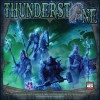



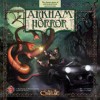










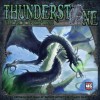
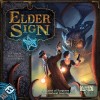



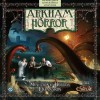

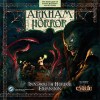
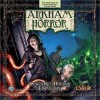


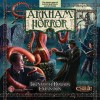



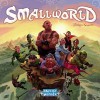

Forbidden Island
Forbidden Island is a great family-friendly intro game to the co-op genre. Players are tasked with collecting 4 sacred treasures and escaping from an island that is sinking into the sea. As the island sinks, tiles are removed from the board restricting players’ options and limiting their movement. Each player has a random special ability that allows them to help in a unique way on their turn, such as the Pilot who can move 1 other player anywhere on the island or the Explorer who can move diagonally.
The game is very easy to set up, easy to teach, and the components are particularly well made, especially the molded treasure pieces. As an intro co-op game it gives players an easy to understand first look at putting each player’s unique skills together to collectively solve a problem.
My only complaint is that it is a bit too easy to understand which leads to two issues. First, in a more experienced game group it quickly leads to an alpha player dictating what other players will do, which naturally takes away from other’s enjoyment of the game. Second, after a few games everything is almost too easy, even on the higher difficulty levels, which severely cuts into the replay value.
Despite those minor issues, the game is a winner for family/casual gamers, with good pacing, good player interaction, and memorable games.